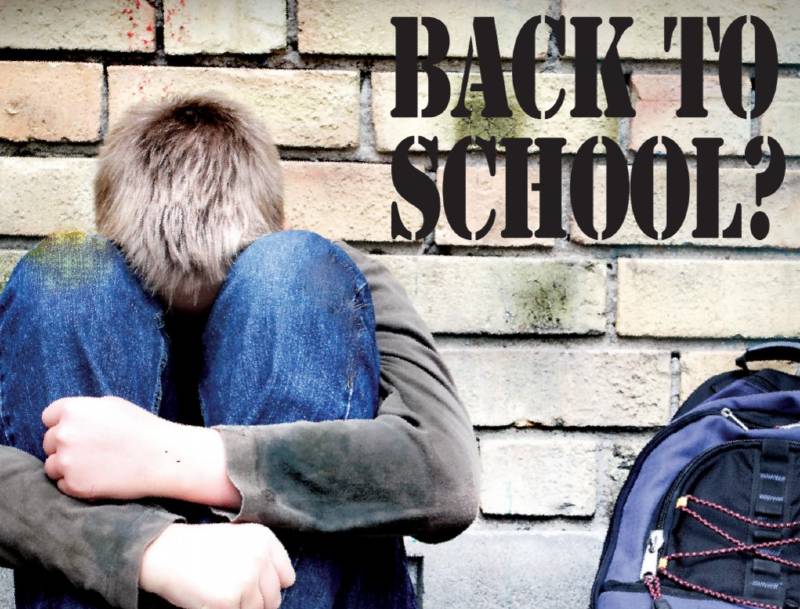Homeless children struggle to stay in school while parents ponder what to do
With child homelessness on the rise, students and families face dual challenges of maintaining academic performance while coping with poverty between classes.
“It is always a hardship to make sure that the kids have all the materials they need for school,” said Lajuan Brooks, a mother of three who experienced homelessness from 2002 to 2006.
When Brooks lost her job, she was pregnant with her third child. She found housing at the Spring Road Family Shelter and struggled to keep her children in school. Brooks is now a receptionist and gets government support to pay her rent.
“You just have to keep your parenting principles in place wherever you are,” Brooks said.
In some parts of the country, homeless children may outnumber adults. According to Susan Benson, director of the Oakland Schools Homeless Student Education Program, the average age of the homeless population in Oakland, California is under 9.
In some cities, like Los Angeles, it is a crime for a youth to be on the street during school hours. Los Angeles charged 12,000 students in 2008 with truancy, which carries a $250 fine.
Many of those students were likely homeless and forced to travel long distances to school. The Los Angeles Bus Riders Union estimates that 80% of those charged with truancy are simply students late for school because they must use public transportation.
This year’s count of homeless children in the D.C. metropolitan area, conducted by the Metropolitan Washington Council of Governments, showed a 25% increase, from 2008-2009. The number may be even larger.
Many families do not disclose their housing situation because they do not want to identify as homeless. The counts do not include families who stay with friends or illegally crammed into single-occupancy motel rooms.
“Our job is to ensure that all children have an opportunity to get a quality education,” says Janice Talley, director of Homeless Children and Youth Programs for D.C. Public Schools, “and that includes homeless children.”
Schools in D.C. are offering more assistance than they are required by law. Students can receive free breakfasts and lunches, assistance with uniforms, nonperishable food items, transportation, and information about transitional living through their local schools.
In July, the Department of Housing and Urban Development gave the District $7.4 million for families who are homeless and to prevent others from becoming homeless.
“This is money that will not only spare families the hardships of homelessness, but will save taxpayers significant money in the long run,” said Secretary Shaun Donovan in a HUD press release. “A little bit of financial assistance can make all the difference between finding a stable home and being forced to live in a shelter or on the streets.”
Some of the money will eventually assist families with children in schools.
Although federal funding will help, the D.C. city budget made cuts to most services used by the homeless.
“They could spend that money in one state and there will still be homeless people. It will not be enough,” says Michael Stoops, acting executive director of the National Coalition for the Homeless. “This money is better than nothing and it’s more than what we have now.”
According to the Virginia Williams Family Resource Center, the number of families seeking assistance is increasing and some have to be turned away.
Still, a few families are making progress in spite of the recession.
Mrs. Porter, 26, who asks that her first name remain anonymous, lost her job in the early part of 2008 while she was pregnant with her second child. Her husband had lost his job a few months earlier.
“It is tough. We had no funds to pay our bills and everything went downhill,” said Mrs. Porter. “I was embarrassed, always crying, and I stopped talking to friends. One thing was clear; I needed to do what I had to do to make sure my kids are fed.”
It was also difficult for her to keep her child in school because she had to move.
When she became homeless, it affected her daughter’s performance at school. “She started to miss days because we were living further away,” says Porter.
When her five-year-old entered the first grade she was behind. By the end of the school year her family was housed at Valley Place, a family shelter in southeast. Her school performance improved; she was helping other children with their work.
Mrs. Porter also made progress in her personal life. She earned her GED and earned her medical assistant certificate from Everest College. She was recently called back for a second interview and has begun to take online classes toward her Bachelors in psychology.
She is ready to move into her own apartment but is hesitant to change her daughter’s school again.
The number of students experiencing homelessness appears to be on the rise nationwide. A poll of school districts conducted by First Focus, a District-based advocacy group, early in the 2008-2009 school-year showed dramatic growth in the number of homeless students compared to the year before.
To help families in shelters, the D.C. Public Schools Department for Homeless Children and Youth Programs will host back-to-school workshops for parents on September 9 and 10 at the Virginia Williams Family Resource Center.
“We hope to give parents information that they can use to work with their children at home so that they can become academically successful in school,” said Talley.
With the help provided by her shelter, amongst other organizations, Ms. Brooks’s children were able to keep their academic performance up.
“My son graduated from high school while being homeless and [is] now taking college courses,” Brooks said. “My daughters stayed on honor roll throughout their homeless period.”
Marcus Williams contributed to this article.








